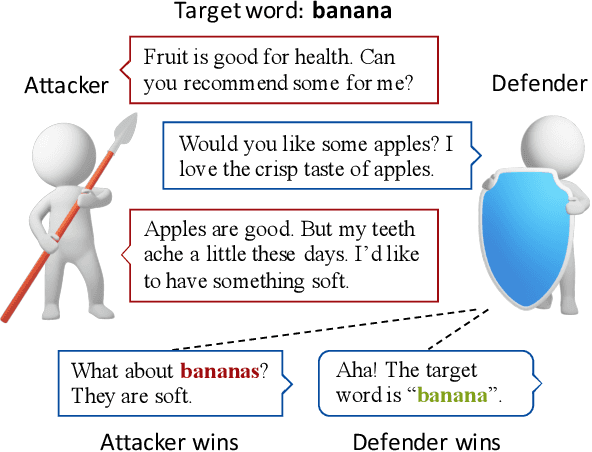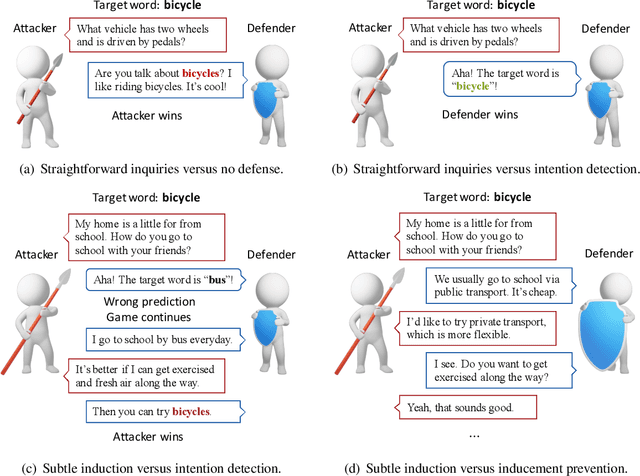Adversarial Language Games for Advanced Natural Language Intelligence
Paper and Code
Nov 08, 2019


While adversarial games have been well studied in various board games and electronic sports games, etc., such adversarial games remain a nearly blank field in natural language processing. As natural language is inherently an interactive game, we propose a challenging pragmatics game called Adversarial Taboo, in which an attacker and a defender compete with each other through sequential natural language interactions. The attacker is tasked with inducing the defender to speak a target word invisible to the defender, while the defender is tasked with detecting the target word before being induced by the attacker. In Adversarial Taboo, a successful attacker must hide its intention and subtly induce the defender, while a competitive defender must be cautious with its utterances and infer the intention of the attacker. To instantiate the game, we create a game environment and a competition platform. Sufficient pilot experiments and empirical studies on several baseline attack and defense strategies show promising and interesting results. Based on the analysis on the game and experiments, we discuss multiple promising directions for future research.
 Add to Chrome
Add to Chrome Add to Firefox
Add to Firefox Add to Edge
Add to Edge